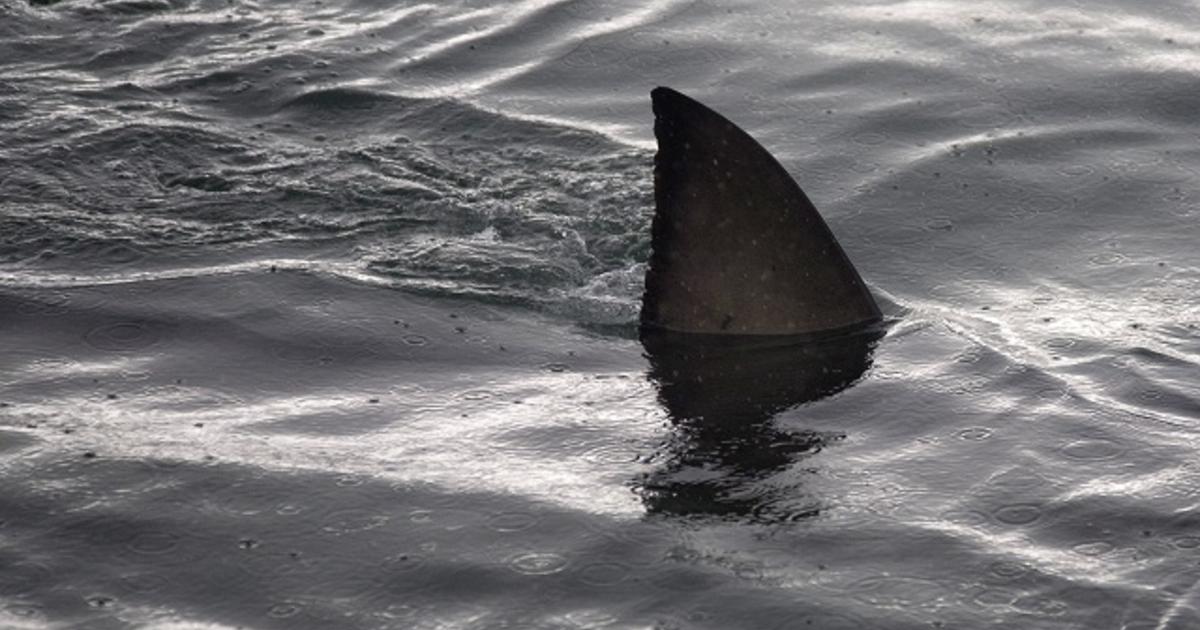How many shark attacks happen each year, and where are they most common?
While recent reports of harrowing shark attacks and great white shark sightings may send shivers down your spine, wildlife experts want swimmers to know that most of these incidents are actually a case of mistaken identity.
"The truth is — when you're in the water, if you're in a healthy marine ecosystem...you're often never more than 100 yards from a shark," Jeff Corwin, an American biologist and wildlife conservationist, recently told CBS News. "We're often interacting with these species and we don't even know about it."
The best way to protect yourself is to recognize "unwanted cues" or "unwanted opportunities" to limit your risk of encountering a shark, Corwin said.
With summer in full swing, here are some facts from experts to set the record straight on sharks.
How many shark attacks happen each year?
Though sharks may be portrayed as villains in movies, they're actually "not dangerous to humans," the NOAA says, noting that only about a dozen of more than 300 species of sharks have been involved in human-related attacks.
"It is extremely unlikely for swimmers and surfers to be bitten by — or even encounter — sharks," Lauren Gaches, director of public affairs for NOAA Fisheries, told CBS News.
Gaches cited the University of Florida's International Shark Attack File, which recorded 41 unprovoked shark bites — six fewer than in 2021 — in the U.S. last year.
In general, unprovoked shark bites have decreased over the past decade. In 2022, there were 57 unprovoked bites worldwide, which is significantly lower than the 10-year average of 74 unprovoked bites annually, according to the University of Florida's data.
"Encounters with sharks are extremely rare. An individual is far more likely to be struck by lightning than to be bitten by a shark," Dr. Robert Latour, professor of marine science at the Virginia Institute of Marine Science, told CBS News.
What to do if you're attacked by a shark
"The best approach is to stay calm and defend yourself. Maintain eye contact with the shark and use a hard object or your hands to jab the nose, gills, and eyes. If you see the shark prior to an attack, position yourself to avoid a bite to the neck or face. Work toward getting out of the water as soon as possible, but do not turn your back and swim," Latour suggests.
Where are unprovoked shark bites most common?
The U.S. tops the charts when it comes to unprovoked shark bites, accounting for about 72% of those recorded worldwide in 2022, according to the University of Florida's records. Australia recorded the second-highest number of unprovoked shark bites in 2022, representing nearly 16% of the 2022 worldwide total, though it did not report any shark-related fatalities.
| Country | Total | Fatal |
| USA | 41 | 1 |
| Australia | 9 | 0 |
| Egypt | 2 | 2 |
| South Africa | 2 | 2 |
| Brazil | 1 | 0 |
| New Zealand | 1 | 0 |
| Thailand | 1 | 0 |
| Worldwide | 57 | 5 |
In 2022, Florida accounted for 39% of unprovoked attacks in the U.S., with Volusia County reporting the most bites, per the Shark Attack File. "In Florida, we're getting those spawning grounds in places like the Gulf of Mexico and along the Atlantic coast," Corwin said about why more sharks may be lured to the Sunshine State.
"Most sharks can be found in the near coastal ocean extending to the edge of the continental shelves, primarily in temperate and subtropical waters. Some shark species can migrate into lower salinity environments, including estuaries and river mouths," Latour explained.
| U.S. | Total | Fatal |
| Florida | 16 | 0 |
| New York | 8 | 0 |
| Hawaii | 5 | 1 |
| California | 4 | 0 |
| South Carolina | 4 | 0 |
| North Carolina | 2 | 0 |
| Alabama | 1 | 0 |
| Texas | 1 | 0 |
| Total Cases | 41 | 1 |
Are sharks coming closer to shore?
"Understanding the effects of climate change on sharks and other fish populations is an emerging area of study and a priority for NOAA Fisheries. Some southern species are extending their ranges farther north. However, there is currently no evidence that sharks are spending more time near shore as a result of warming waters," Gaches said.
How to avoid shark attacks
Here are some ways to lower your risk, according to wildlife experts:
- Stay close to shore and avoid swimming solo
- Remain vigilant when visiting a sandbar or dropoff
- Remain relatively close to the shore
- Be mindful of what you're wearing and avoid shiny jewelry or high contrasting clothing
- Avoid swimming with an open wound or if you're bleeding
- Avoid swimming near fishing activities
- Avoid murky or cloudy waters
- Avoid excess splashing
Corwin also recommends avoiding the water at dawn and dusk, when there can be confusion.
If you notice sharks nearby, then you should "slowly and calmly" make your way back to shore, the university notes.
"Sharks are active and migratory year-round, however, encounters with humans increase during times of the year when people are actively entering the water," Latour said.
Why are sharks important to our ecosystem?
One of the top goals of conservationists is to save sharks from overfishing and sustainably manage sharks in our oceans. That's because they help regulate prey populations and bring balance to the ecosystem.
"As one of the top ocean predators, sharks play an important role in the food web and help ensure balance in the ocean's ecosystem. NOAA Fisheries is committed to sustainable shark management," said Gaches, explaining that the organization helps protect shark populations through research and by working with U.S. fishermen and restricting shark harvests, among other methods.
"Robust shark populations promote biodiversity which is vital to ecosystem health," Latour added.
Corwin agreed that sharks are "incredible creatures" and a sign of a "vibrant, resilient ecosystem."
"In places in the world — marine environments where we see collapse — often the first thing we see is a disappearance of their apex predator, which are sharks. We need sharks. They're time-tested. They've been on our planet for 100 million years. It tells us something's awry when we lose our sharks."
for more features.



